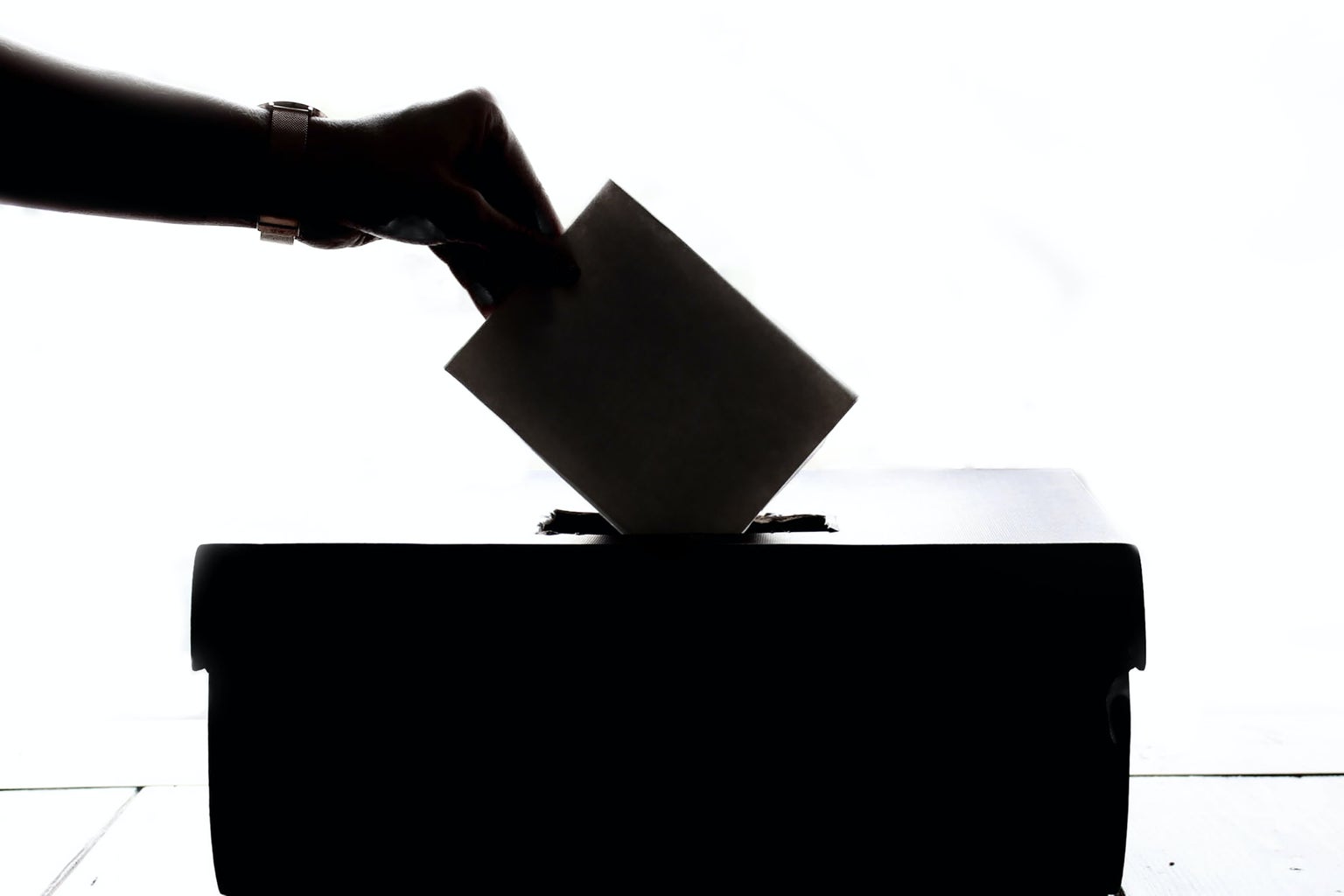It’s election season—if you weren’t already keenly aware. With November 5th approaching, it’s time not only to vote but to get informed about how to do it and what you’re actually voting for!
Many view Election Day as the time to choose our next President. While that’s certainly on the ballot, there’s much more at stake! Your ballot is your opportunity to elect representatives at every level, from local district officials to members of Congress. That’s real power at your fingertips. So, let’s get into what you’ll be voting for and how you can make it count.
But first, register!
First and foremost, check your voter registration status here! It takes 30 seconds.
If, for any reason you aren’t registered, don’t fret! Although online registration has officially passed, you can still register at the polls on election day — November 5th.
If you are registered, you should have received a mail-in ballot and voting guide at your home address. You may complete the ballot at your convenience and submit it by mail, drop it off at any official ballot drop box, or bring it directly to a polling location for collection on Election Day.
Locations Galore
If you’re particularly anxious to get out to the polls — I know I am — early in-person voting opens on October 26th, and luckily there is a polling site right alongside campus! Check here for more polling locations near you.
There’s a Time and a Place
As I’ve mentioned, you can vote as early as now by mail, in-person starting on October 26th, and voting closes at 8pm on November 5th, 2024 (Election Day).
Finding your District
Great! You now know when, where, and how you’ll vote—you’re all set. Now it’s time to dive into the details. Districts matter! The issues on your ballot depend on the specific district you reside in within Berkeley. Check what district you’re in here.
Source: https://berkeleyca.gov/sites/default/files/documents/Berkeley-City-Council-Districts.pdf
Navigating Local Berkeley Offices
Now it’s time to check some boxes. The local, nonpartisan offices on this year’s general election ballot for Berkeley voters will include voting for a new mayor, new City Council members if you reside in districts 2, 3, 5 and 6, a new rent board (4 seats available) and a new school board (2 seats)!
Mayoral Candidates:
- Adena Ishii, Education Consultant
- Sophie Hahn, Berkeley City Councilmember
- Kate Harrison, International Management Consultant
- Naomi D. Pete
- Logan Bowie, Paralegal
District City Council Members
District 2
- Terry Taplin, Berkeley City Councilmember
- Jenny Guarino, Union Officer/Organizer
District 3
- Deborah Matthews, Real Estate Broker
- John “Chip” Moore, Entrepreneur/Graduate Student
- Ben Bartlett, Berkeley City Councilmember
District 5
- Nilang Gor, Scientist
- Todd Andrew, Community Volunteer
- Shoshana O’Keefe, Teacher/Zoning Commissioner
District 6
- Brent Blackaby, Businessperson/Commissioner/Parent
- Ar OUYndy Katz, Director, Ward 4, East Bay Municipal Utility District
Rent Stabilization Board Commissioner
- Alfred Twu, Architect/Artist
- Carole Marasovic, Attorney/City Commissioner
- Xavier Johnson, Rent Stabilization Board Commissioner
- Avery Arbaugh, Labor Commissioner/Student
- Andy Kelley, Rent Stabilization Board Commissioner
- Dominique Walker, Rent Stabilization Board Commissioner, School Board Director
- Norma J F Harrison, Community Volunteer
- Jen Corn, School Improvement Director
- Laura Babbitt, Incumbent
- Ana Vasudeo, Berkeley School Board Director
- Abdur Sikder, Lecturer, Faculty
Good-to-knows:
- Mayoral and City Council elections are based on Rank Choice voting (meaning you vote for your first choice, second, third, etc.) and the candidate with the majority votes will win!
- Berkeley Rent Stabilization Board Commissioners and School Board Directors are elected by plurality vote. This means the candidates who receive the highest number of votes will win.
- Bond measures and special tax measures require a ⅔ majority vote, while other initiatives, general taxes and amendments just require a simple majority.
Measuring the Measures
This cycle the ballot is packed to the brim, with 12 proposed measures! Let’s do a quick rundown, so you can get some familiarity: (in alphabetical order…;)
- Measure AA: This allows Berkeley to spend all funds generated by our cities taxes for fiscal years 2025 through 2028.
- Measure BB: This sets aside funds for a housing retention program, allowing tenants that represent at least 50% of the occupied rental units in a building to form an association, and limit the maximum annual rent increase to 5% (down from the current at 7%).
- Measure CC: This measure sets aside existing revenue to create a fund for rent payments to property owners on behalf of struggling tenants. Then, these tenants representing two-thirds of occupied units would be given the ability to form an association, and remove certain powers from the Rent Board.
(If both BB and CC pass, the one with the higher vote count will prevail.)
- Measure DD: This measure would ban livestock agriculture within Berkeley.
- Measure EE: This measure would create a special parcel tax of 13 cents per square foot on all property to fund repairs on street surfaces, sidewalks and paths.
- Measure FF: This measure would create a special parcel tax of 17 cents per square foot on residential property and 25 cents per square foot on commercial property to fund street and sidewalk repair — as well as new safety infrastructure such as traffic-calming devices and street redesigns.
(If both EE and FF pass, the one with the higher vote count will prevail.)
- Measure GG: This would create a special tax on natural gas consumption in large buildings that are actively heated or cooled.
- Measure HH: This measure would require Berkeley to adopt minimum air quality standards for city-owned and leased buildings.
- Measure W restructures a property transfer tax for homes valued at $1.6 million or higher to raise money to rehouse homeless people.
- Measure X: This creates a special parcel tax to fund the Berkeley Public Library!
- Measure Y: This increases the special parcel tax for parks, trees and landscaping.
- Measure Z: This extends Berkeley’s existing sugar-sweetened beverage tax, which is orchestrated to expire as of January 2027

Every vote truly matters—even in California. Local elections, propositions, and initiatives often hinge on just a few votes, and the results shape policies that impact our daily lives in concrete ways. Voting is not only a right but also a powerful way to influence the direction of our communities. So cast your ballot, rally those around you, and let’s make our voices heard to shape the future we want in this election.




